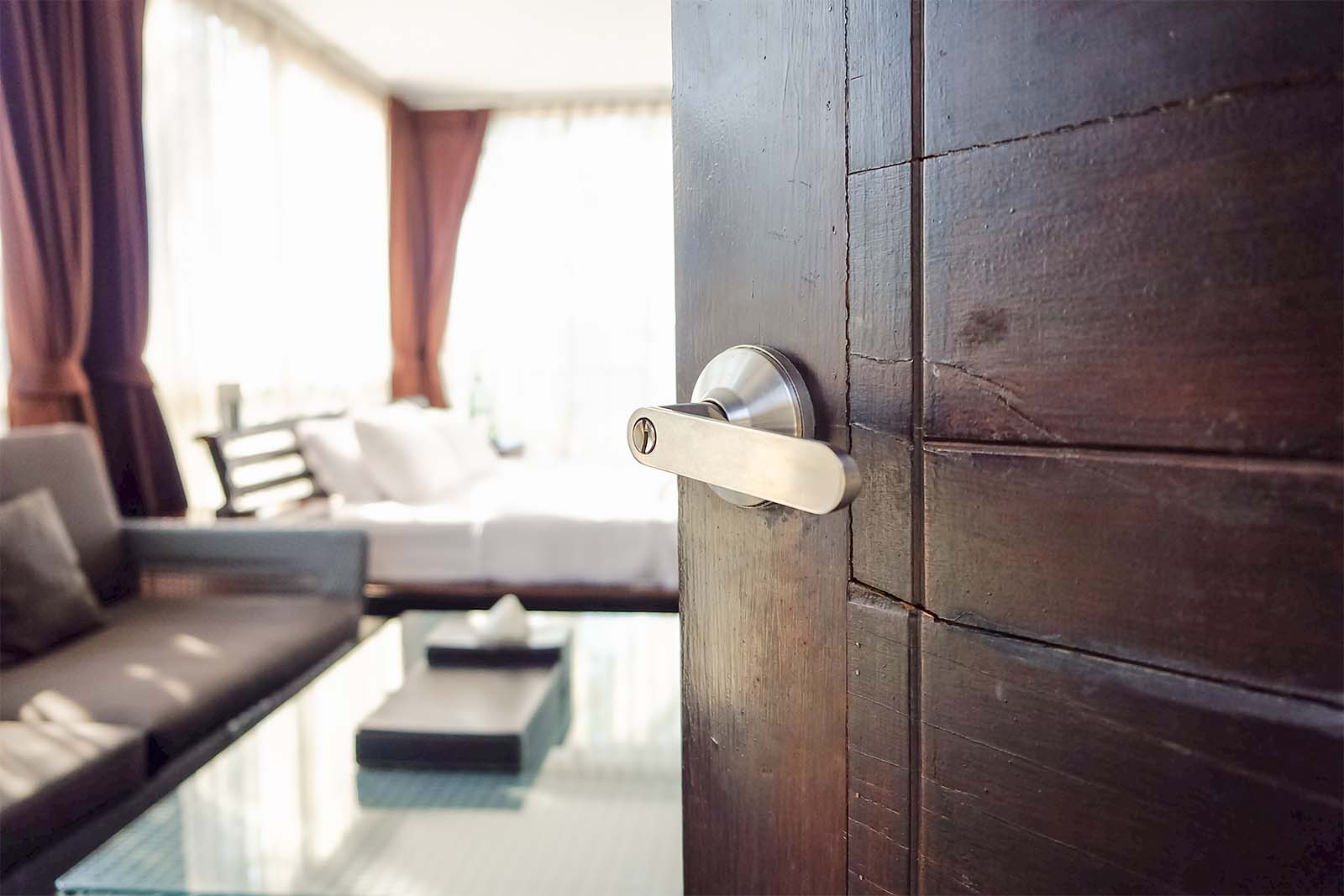Considering certain places as sacred and private, where we shouldn’t use electronic devices, how do we balance using our bedrooms for study and work and using them for prayer and sleep? Perhaps the key here is the door: keep the door open when we are not praying, changing clothes, or sleeping. This can make a big difference.
What do we “say” by our actions when we close the door? We are saying, “Don’t bother me… I want to be alone.”
What do we “say” when our door is open? We are saying, “I am here for you… If you need anything just come and ask.”
Mentally, an open door keeps us connected to the rest of the family. When a person goes into his room, closes the door, puts on his headphones, turns on his electronic device (whether a computer game, social media, entertainment, or even music) he goes into another world and disconnects from the persons who love him, his family. Keeping electronics out of the bedroom helps, but even more so when we keep our door open. Some people even keep their door cracked open at night to help prevent the air from becoming stale and to keep their connection to the rest of the family while they sleep—parents often do this to keep an open ear for an infant’s or a sick child’s nighttime needs.
Finally, it is harder to give in to a solitary sin if we are mentally always connected to those we love and who love us… if we are never solitary, but always living the communion of the saints.
Yet sometimes, we need to concentrate to get work done; even simple tasks like paying bills or balancing the checkbook. In such times we need to concentrate and may feel the need to close the door and isolate ourselves, especially as little children come out of curiosity or to seek attention.
Some people put a glass window in their home–office door so that they can have the needed quiet yet do work in full view of their spouse and children. When doing so, it is good practice that any screens used in one’s work can be seen through the glass window.
There is also the advice I often give grade–schoolers who often complain that fights break out with younger siblings when they are trying to get some work done: “Tell your little brother/sister, ‘I need to finish my math homework. Give me about 20 minutes to finish and then we’ll play this game together…’ The younger sibling will feel honored that his older brother/sister wants to play with them and will give him the space to finish. Afterward, you can return to your homework and do the rest.” Mom and dad need to learn to do the same with children who do need attention while seeing mom and dad do concentrated work or alone praying—what a wonderful lesson!
Along this line, it can be good to have reading time after dinner where each child reads his own book—perhaps just looking at the pictures—while mom and dad each read their own books too. This has the benefit of giving children an example of reading, working, and concentrating on something besides screens. Of course, this has to be adapted to the age of the children.
While this is difficult—it is NOT an absolute—this approach can teach some very deep and useful lessons that will endure into college (think dormitory life) and beyond.
Some Suggestions to Discuss as a Family (or to Set for Oneself)
Why do I feel the need to be alone? When do I feel isolated from family or friends?
When do I feel like closing my door? When do I really need to close my door? When do I feel that others are bothering me and I wish to shut them out of my life? Is there a better way of dealing with this?
Write me with your ideas and comments: frjohn@sma-church.org.


